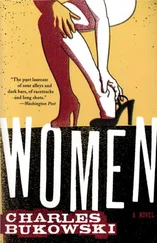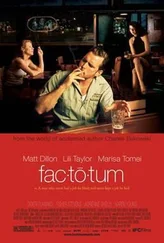The morning he signed with the Dodgers, Lincoln told his old man that he didn't particularly need to be a big star. All he wanted was to give it the best ride he could. To find out how he stacked up. And this indeed is what he did: an educational and boring season of rookie ball in the metropolis of Ogden, Utah; a prolonged and confusing week when his agent kept calling, telling him to sit tight; the eventual trade and relocation to San Bernardino, the next two years of single-A ball. During all of which, the biggest thing Lincoln discovered was: everything gets exposed. Which is to say that if a guy steps between the foul lines each day, players, scouts, and managers will get a sense of just what he can and cannot do, not only the bubbling possibilities that exist within that player at any given moment, but also the plowlike inevitability of how he performs on a routine basis. Lincoln, well, his verdict was packed with conditionals: he was athletic, yes, but not so gifted as to differentiate himself from the general talent pool; he had the speed to steal on a pitcher who did not keep him honest, but not the wheels that stretched a defense and wreaked havoc; his glove was dependable enough to pencil in at second or short without worry, but wasn't so dazzling as to justify a place in the lineup. If you hung a curve or served up a piece of slop, Lincoln made you pay; in important at bats he could be counted on to hang in, foul off pitches, and force a pitcher to throw his best stuff. But a pitcher's best stuff would beat Lincoln. As scrappy and disciplined as number twenty-two may have been, Ewing didn't have the wrists to turn on a ninety-mile-an-hour fastball as it snapped and tailed nastily toward the inside black rubber of the plate. Even decent sliders blew him out of the box.
The story goes that the little engine chugged up the hill by telling himself, I think I can; and, certainly, there are people in every field of professional life who can will themselves to success. But force of will alone does not necessarily get a train up the hill, create a successful business, or enable an entrance into the hall of fame. Rather, will, or an unvarnished need to succeed, usually forces a person to learn his craft, to harness the talent that will guide him, rail by painful rail, down the track toward that masterpiece. This having been said, discipline and persistence also can get a person only so far. An eighteen-year-old bonus baby from the Dominican Republic was brought up from rookie ball. He spoke pidgin English, wore his stirrups unfashionably high, and routinely compensated for unforgivable mental mistakes with a fluidity that was almost leopardlike. He took Lincoln's place in the everyday lineup and not much needed to be said about why. Lincoln tried to keep his chin up, conducting himself as professionally as would be expected of someone who was hoping to be traded to a team that would give him a chance. Nevertheless, when he did get at bats, Lincoln found himself swinging from his heels, overanticipating pitches, sometimes just plain guessing. When he managed to stay focused, work the count to his advantage, then sat on a fastball and guessed right, half the time he still ended up being overpowered. Instead of the anger that he used to feel about being hung out to dry, however, Lincoln found himself feeling something else. Returning to the dugout, he'd shove his bat back into its slot on the rack, down a cup of the official athletic drink of that particular minor league park, and accept the halfhearted low fives of teammates who are obliged to console one of their own. And as he did these things, the competitive voice inside Lincoln — that same voice that propels an athlete to believe in his abilities — would be a bit more faint than on the previous day. But it was as if something else was solidifying inside of him, too, as if a suspicion that he had long harbored was now confirmed, as if a shameful secret had just been announced, for all to hear.
He was still growing into his body and would not be at his physical peak for years; he was still figuring out the mental aspects of playing professional baseball, which was the most cerebral of sports. Even so, Lincoln had the sense he was reading a lineup card that did not have his name on it, the feeling that even if he managed to rededicate himself to a daily routine of extra batting practice and weight lifting, if he shortened and compacted his stroke as hitting instructors wanted, if he followed through on his private oaths to become more thorough in charting opposing pitchers, and grew into his body, and played the game while channeling the spirits of Ty Cobb and Sandy Koufax and Secretariat, if he did all these things, Lincoln, when he checked deep in his gut, nonetheless recognized a ceiling to his potential. And from the top of this ceiling, he saw how far it was to the Show. Lincoln had the curse of being good enough to see just how much better he needed to be. He also had the ability to ask himself if he honestly wanted to work this hard, if he really wanted to spend his twenties traveling back roads on rickety buses and sleeping in motels on the side of the interstate.
Calling his dad was not one of the easier things he'd ever done, but after some silence that Lincoln had come to know meant both disappointment and understanding, his father said that all you could ask of a man was to give it his best. His dad wondered if Lincoln could stick it out until the end of the season, and he reminded Lincoln that once you quit at one thing you quit at them all. Lincoln listened, and responded with a mournful breath of his own. He told his dad that he would think about it. He told his father he loved him, and he thanked his old man, and the next day when Lincoln took the field to warm up, the smell of freshly cut grass had been about the sweetest thing in the world, and there'd been little in his life he'd ever appreciated as much as the sounds of mitts popping all around him, the protracted ease of guys loosening their bodies with a round of catch. The batboy purchased a bag of peanuts for him on the sly. The opposing pitcher was nineteen years old, threw a hundred and two miles an hour, and couldn't get a pitch over the plate with the help of a laser guided missile system. By the sixth, the game was out of hand. In the seventh, both managers were substituting freely. Lincoln fielded all three of his chances at second base cleanly and without fanfare. In the bottom of the eighth he turned on a changeup, made contact squarely on the sweet spot of his bat, and felt a continuity running deep into the marrow of his arms, grooving the ball to right for a solid single. A week earlier it would have told him there was hope, he could turn things around, a hot streak was on the way.
Instead he cleaned out his locker. His best mitts, cleats, hats, and batting gloves went into his team duffel. His game jersey, though caked with infield clay, did not go into one of the organization's large, rolling laundry bins, but headed out the door with him as well. A tag sale in front of his apartment complex freed him of his couch and dresser. What the Salvation Army did not want of his other meager furnishings, he left by the curb. Lincoln didn't have much of a plan, nothing in his life was organized to the point of thought. All he wanted was to sit by the side of a hotel pool and sip on a colorful drink with a paper umbrella in it and watch the girls unwrap themselves, just sit and dissolve underneath the sun's brightness and maybe dive in when it got too hot. He wanted to hit on girls in nightclubs and get plastered in bars, to take in glitzy shows and double down at blackjack and roll craps and go for the inside straight, anything that might distract a man who had just walked away from a good chunk of his identity.
Las Vegas had mythic status as a party town among other minor leaguers, with more than a few former teammates settling there. A catcher with arthritis in both knees offered hospitality and Lincoln accepted and drove down for a visit. At the time the Strip was still in the larval stages of its now epic transformation: financed in part by junk bonds, a maverick hotelier had constructed a pair of large five-star resort complexes a half a mile away from one another. Each resort was wildly successful, and therefore served as the forerunners in what would become a cycle of resorts that were as much city-states as they were hotels. By the time Lincoln hit town, construction had begun on a new billion-dollar MGM, whose façade and towers would be shrouded in green light in a tribute to the emerald kingdom of that studio's most famous film. Hotels with Egyptian and medieval themes were also at early stages of development. It was the ground floor of a boom time that would last more than a decade: bodies were needed to put down carpeting, wash sheets, maintain gardens, and pick up trash in parking lots. Jobs were available teaching the children of all these new hotel employees and manning the post offices that sent alimony payments back to former spouses. Since all these newly transplanted employees needed to live somewhere, even more construction jobs became available. And since there was no end to the desert, untold space existed for more master planned communities, which meant rents were pretty cheap. Topping it all off, the state had no sales tax, so a fella could make his nest egg last, were he so inclined.
Читать дальше











